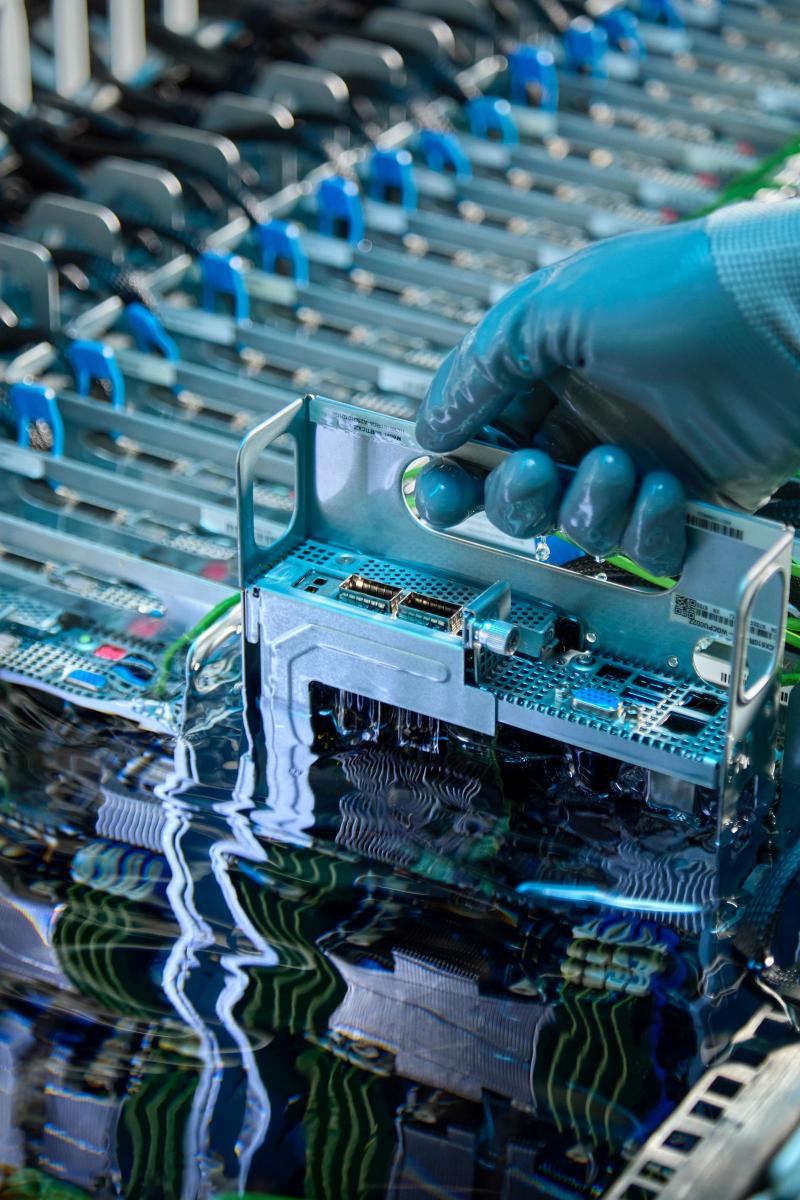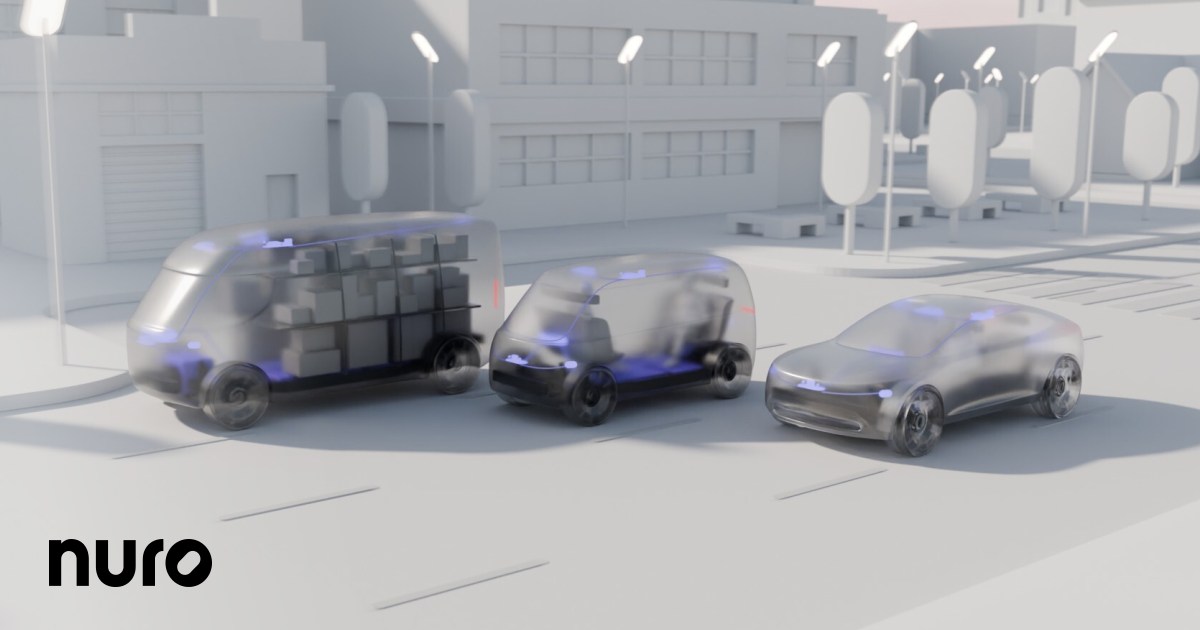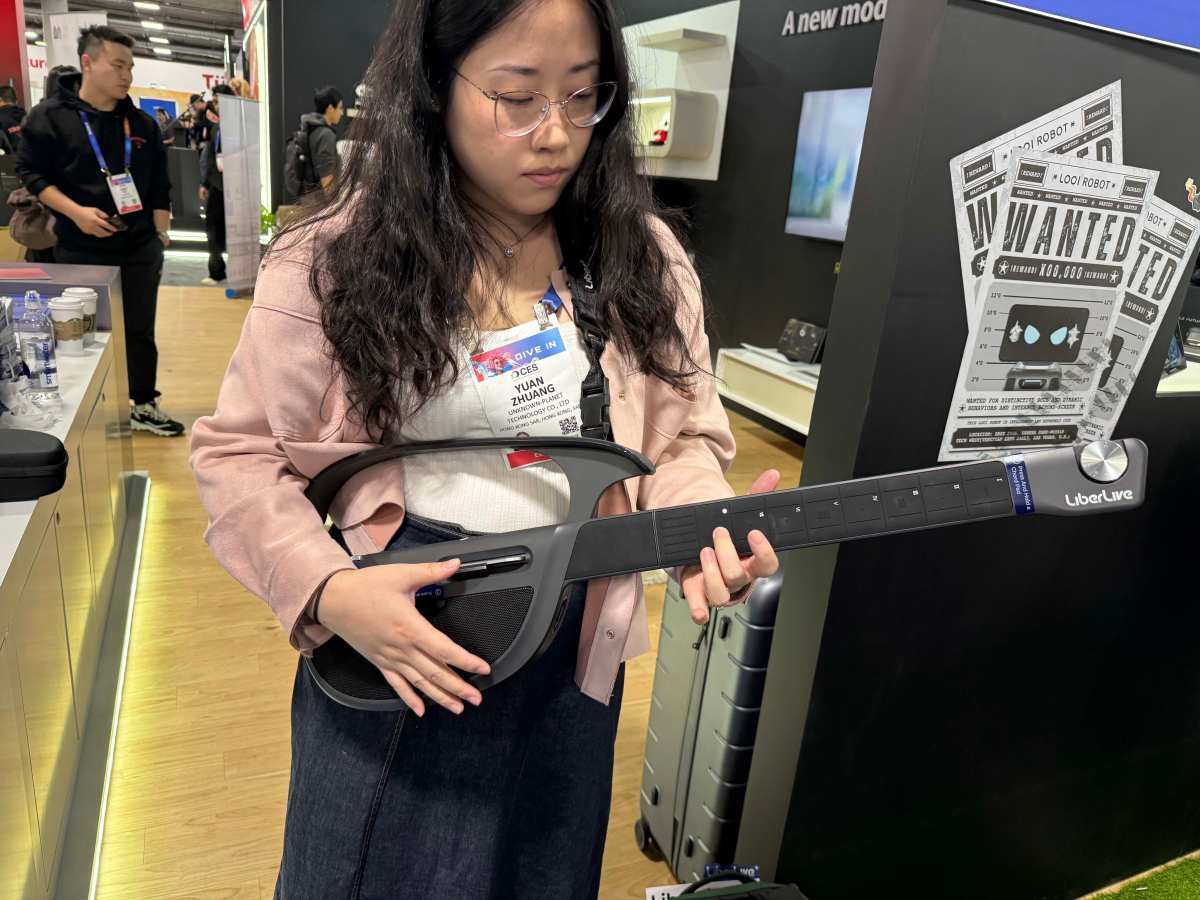The race is on for better chips and data center capacity to handle AI workloads, but all that activity comes with a catch. Heavy processing power means heat — a lot of it — and that has massive implications, both for how well servers operate and the environment.
With traditional cooling methods like air and water failing to keep up with demand, startups with new approaches are seeing their stars rise. Among them is Barcelona-based Submer, which just raised $55.5 million at a valuation of half a billion dollars to scale its business: a system where entire racks are submerged in, and operate out of, vessels filled with proprietary, biodegradable, non-conducting coolant that co-founder Pol Valls likened to an “amniotic fluid.”
Submer’s business is already at a steady boil. Valls, who co-founded the company with CTO Daniel Pope, said that its customers include at least one of the world’s biggest and best-known “hyperscalers,” which operates a number of data centers; telecoms companies like Telefonica; corporates like ExxonMobil; government bodies like the European Commission; and major research centers. (Valls, who is the company’s CFO currently, declined to give several names on the record.)
Because of that list and the current pipeline in discussion, this round — led by M&G, with previous backers Planet First Partners and Norrsken VC also participating alongside new investor Mundi Ventures — is coming in at a valuation of about $500 million, said Valls.
The challenge that Submer is tackling is partly technological and partly one of cost and resource consumption.
Put simply, the data center industry is already a major energy hog, and AI is leading it to the trough.
Estimates from the International Energy Agency put data center consumption at 460TWh in 2022 (the latest figure available), which works out at between 1% and 2% of global energy consumption. The IEA predicts this could more than double to 1,000TWh by 2026, “roughly equivalent to the electricity consumption of Japan,” it writes.
Meanwhile, a research paper from Goldman Sachs from May noted that on average, a ChatGPT search “needs nearly 10 times as much electricity to process as a Google search.” The paper predicted that data center power demand will grow 160% by 2030. Other researchers have pointed to the “growing carbon footprint” of AI and the billions of cubic meters of water that are needed to cool these data centers.

That is where Submer’s technology comes to bear. As we have previously recounted, Valls and Pope arrived at the idea of building a better approach to data center cooling because of Pope’s previous experience in running data centers and Valls’ programming expertise. Valls could see that the pace of technology would demand more processing power over time, and Pope knew the limitations of data centers.
They turned to a network of retired industrial engineers and material scientists to help develop the product, which includes a coolant — a proprietary, non-flammable, biodegradable, synthetic mixture that has the viscosity of water, Valls said — and a smart container where server racks could be installed and operate. These days, Submer offers a range of immersion fluids and containers.
The road hasn’t always been smooth for the startup. In 2016, feeling optimistic about what it had built, the duo applied but got rejected from Y Combinator.
At that time, Submer’s product might have indeed looked like an unglamorous solution for a very unglamorous business. It took the explosion of computing in recent years — propelled by rapid migrations to the cloud and then the more recent AI boom — to really focus industry minds and drive business ahead for the company.
Now the company is building an ecosystem, Valls said, where server component companies are interested enough in what Submer has that they are building parts that will be compatible with Submer’s solution.
“We have agreements with the major server OEMs,” Valls said. “It look a lot of time and effort but we are scaling these and it’s becoming easier and easier.” Its pitch is pretty simple, he said. “We show the data. It extends the lifespan of the servers and there are no particles, no dust, and no noise.” These partners include the likes of Dell, Intel, and more.
Per Pitchbook, the startup, which has now raised around $100 million, is currently a standout among its peers in terms of money raised and valuation. Others taking the liquid-solution approach include Icetope in the U.K and two startups out of Texas. One, LiquidStack, announced funding from Tiger Global only a couple of weeks ago. The other, Green Revolution Cooling, is backed by the National Science Foundation and the U.S. Department of Defense.
The task ahead for Submer will be to get more partners and customers signed up. It’s notable that the company recently appointed a new CEO with considerable corporate experience. Patrick Smets, who initially joined Submer in August 2023 as the COO, came in as CEO in January 2024.




